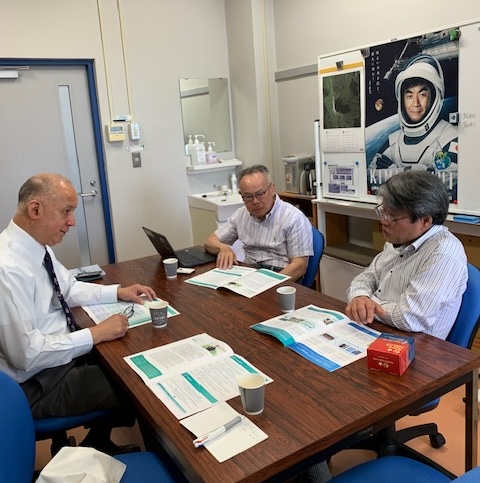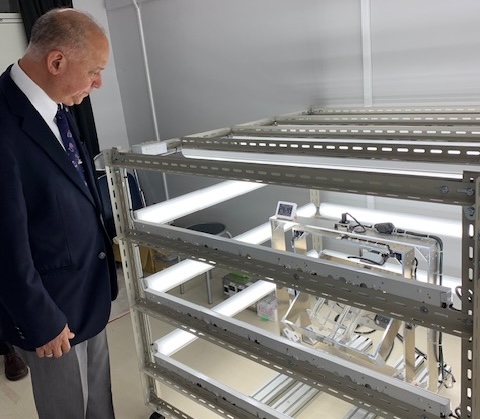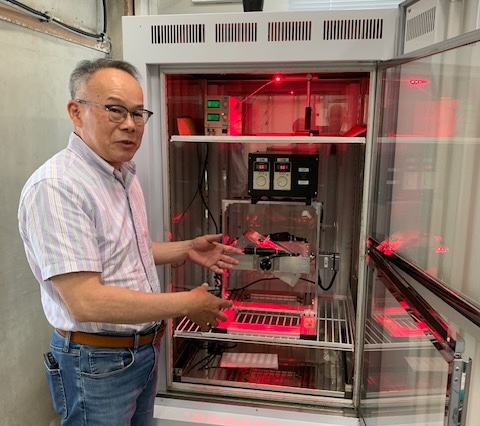Visit to Chiba University’s Research Center for Space Agriculture and Horticulture

Dr. Ritter Diaz, Representative Director of the Japan Association for the Promotion of Latin America and the Caribbean (JAPOLAC), visited the Research Center for Space Agriculture and Horticulture at Chiba University’s Graduate School of Horticulture (Matsudo Campus) to learn about Japan’s pioneering efforts in sustainable food production for space exploration and the potential for academic and technological collaboration with universities across Latin America and the Caribbean.
Dr. Diaz visit included a detailed briefing on the Center’s mission to develop autonomous, closed-loop food systems for long-term human missions to the Moon, Mars, and deep-space travel.
Advancing Food Security in Space and Earth
The Research Center is focused on adapting plant factory technologies, genome editing, and closed ecosystem recycling systems to support life beyond Earth. The center also plays a strategic role in supporting Japan’s space initiatives, including the JAXA program and international partnerships under the Artemis Program.
A wide variety of crops are currently under research, including:
- Tomatoes – valued for their vitamin C, antioxidants, and comfort food qualities.
- Cucumbers – studied for their water-seeking root behavior (hydrotropism).
- Soybeans – a key protein source with multiple by-products.
- Rice – a staple carbohydrate being adapted for space-efficient cultivation.
- Potatoes and Sweet Potatoes – calorie-dense and easy to grow in closed systems.
- Strawberries and Lettuce – high-nutrient crops important for crew morale and diet.
These crops are being tested under simulated lunar and Martian conditions, with the aim of developing nutrient-rich, fast-growing, stress-resistant cultivars and fully recyclable agricultural systems for long-duration space missions. Technologies include pollination drones, robotic harvesters, and low-gravity simulators.

Toward International Academic Cooperation
Dr. Diaz expressed keen interest in promoting academic collaboration between the Center and universities in Latin America and the Caribbean, particularly in areas such as controlled environment agriculture, biotechnology, and sustainable development. The potential to apply space-agriculture technology to climate-stressed environments on Earth presents valuable opportunities for joint research and knowledge transfer.
“This center embodies not only the future of space exploration but also the future of agriculture on our planet,” said Dr. Diaz. “Its work aligns perfectly with the challenges many countries in Latin America and the Caribbean face in developing resilient, zero-emission food systems.”
JAPOLAC looks forward to facilitating dialogue between Chiba University and academic institutions across the region to explore joint research projects, student exchanges, and technology transfer, particularly in partnership with technology universities and and science and technology agencies in the LAC region.

